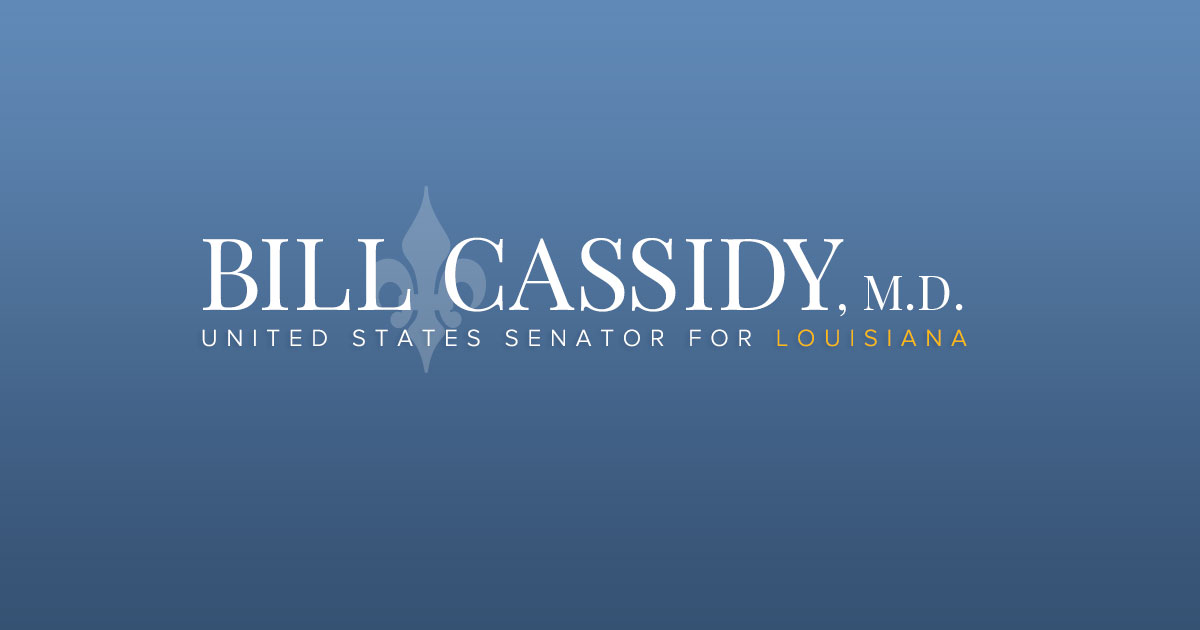Source: United States Senator for Louisiana Bill Cassidy
05.05.22
WASHINGTON – U.S. Senator Bill Cassidy, M.D. (R-LA), member of the Senate Energy and Natural Resources and Senate Finance Committees, joined the Council on Foreign Relations to discuss the energy security crisis, addressing climate, trade policy, and other matters related to U.S. national security.
Watch Cassidy’s conversation with Wall Street Journal reporter Vivian Salama and members of the Council on Foreign Relations here.
On Energy Operation Warp Speed…
“So we’ve called for what we call an Operation Warp Speed on energy. And it was said to have taken two to ten years for a vaccine to be produced for COVID, and within ten months we were vaccinating folks. What if we have an Operation Warp Speed when it comes to permitting new energy infrastructure? If it weren’t for permitting delays, we would be able to be either producing and/or shipping within twelve months. And instead, the recurring theme is it will take us two, three, five years. You know, to quote Pogo, we have met the enemy and he is us. The administration needs to stop being the enemy of domestic energy production both for our sake, and for the sake of our allies.”
On carbon border adjustment…
“…in 2005 the EU and the U.S. committed to lowering emissions. Since then, we have, despite higher GDP and higher population growth…The Chinese did not commit to doing so. And there’s a reason for it. The reason they didn’t is that it’s cheaper to manufacture if you don’t have environmental standards…They’re using coal as a cheap form of energy. And so it attracts foreign direct investment…let’s go to a carbon border adjustment. Well, listen, China, if you wish to import to the United States, and if we can work with our allies to the EU as well, Canada and U.K. If you wish to import to some of the largest consuming nations in the world then you are going to have to match our regulations, our standards for lowering carbon intensity. If you don’t, you’re going to pay a fee…I think the better way to approach our trade with China is to say: OK, if you’re kind of manipulating, arbitraging, whatever you want to say, ignoring the international commitments that you theoretically have made to lower carbon intensity, in order to attract foreign direct investment, and then import the same good back to our economy, we’re going to attach a fee to your carbon intensity. Now, that would begin to level the playing field, frankly re-shore or near-shore a lot of industry, and protect American jobs.”
On energy security…
“…there’s a nexus between national security, the economy of the family—the economy of a family and of a country, between energy and climate. If you ignore any one of those, you lose all four…natural gas, which has about 50 percent of the carbon footprint per unit of energy, has significantly replaced coal as an energy source, and gas has replaced oil as feedstock for chemical industry…we took care of our energy production by expanding the development of cheap natural gas. And we’ve remarkably lowered the price. And because of that, our economy has improved. Because of that, our national security has improved. We’re much less dependent upon the Middle East than we formerly were because we’ve increased our domestic supply. And as I’ve already pointed out, the climate has benefitted because we’ve decreased our emissions, despite larger economy and larger population. So that’s how, if you address all four simultaneously, you do well.”
###
